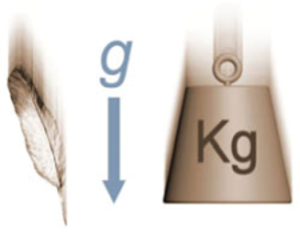Tests of fundamental physics
The enhanced sensitivity of quantum sensors allows for a number of tests of fundamental physics, particularly in experimental gravitation. The most direct application is that of a dual-species matterwave interferometer to test the Universality of Free Fall. This is a cornerstone of the Einstein Equivalence Principle and a foundation of General Relativity.
We are using the drop tower to investigate the feasibility of such a quantum test as well as systematic effects these precision measurements are facing at extended free-fall times.
A further classical test of gravitational theory is the measurement of the gravitational redshift. It leads to a time delay of (stationary) clocks at elevated gravitational potential if compared to a clock deeper inside the gravitational potential well. We are investigating the gravitational redshift and other relativistic clock effects in the context of Global Navigation Satellite Systems and have been able to obtain accurate confirmation of the predicted effects e.g. in data from Galileo 5 and 6 on eccentric orbits.
In close collaboration with the local Gravitational Theory group, we are exploring further potential test experiments as well, motivated in particular by the prospect of applying concepts and instruments of quantum sensors to aspects of gravitational theory.

Related publications
H. Albers et al.: Quantum test of the Universality of Free Fall using rubidium and potassium, Eur. Phys. J. D, 74, 145 (2020)
S. Herrmann et al.: Test of the Gravitational Redshift with Galileo Satellites in an Eccentric Orbit, Phys. Rev. Lett. 121, 231102 (2018)
S. Herrmann et al.: Testing Fundamental Physics with Degenerate Quantum Gases in Microgravity, Microgravity Sci. Technol. 22, 529-538 (2010)


 "
"